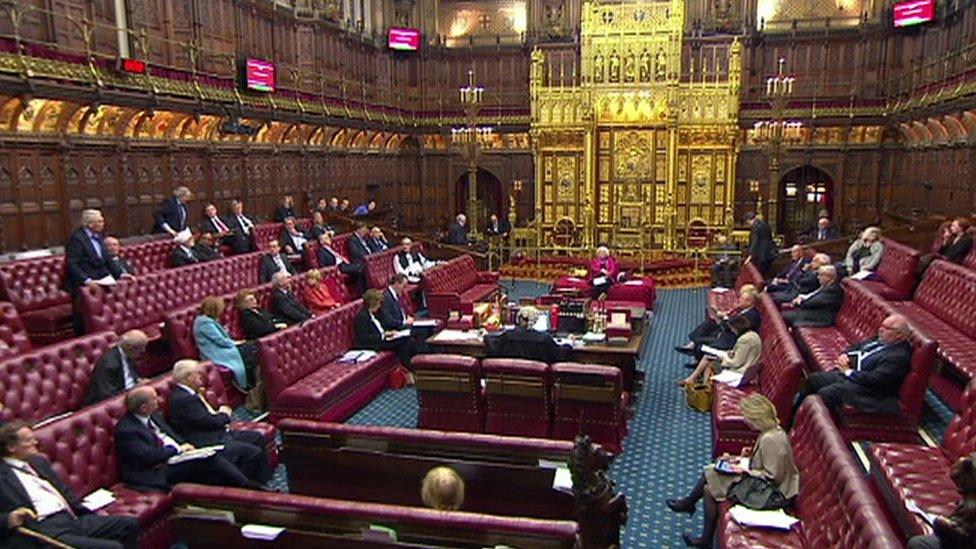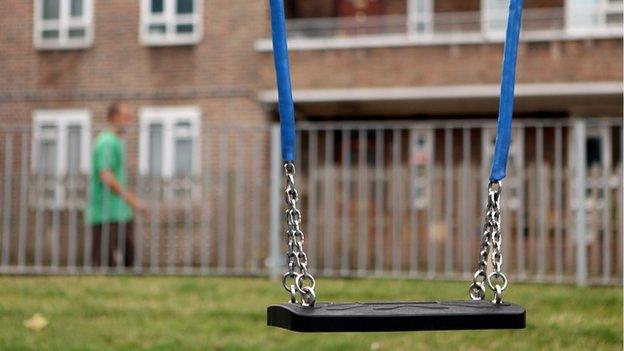Peers defeat government over child poverty reports
- Published

The government has lost a vote in the House of Lords on child poverty.
Peers voted by a majority of 92 to amend the Welfare Reform and Work Bill, external to make ministers report annually on income levels in the poorest families.
The move was spearheaded by the Bishop of Durham, Rt Rev Paul Butler, who argued income-related statistics must be recorded so they could be assessed with other measurements of deprivation.
Ministers say life chances are a better measure of economic outcomes.
The defeat could be overturned when the bill returns to the Commons later this year.
If it is not, ministers will be obliged to present a report to Parliament each year setting out the percentage of children in households whose net income is 60% to 70% below the median average.
'Damaging effect'
The government's decision to change how child poverty is measured, to focus on the root causes of poverty rather than income disparities, has angered opposition parties and anti-poverty campaigners
But ministers insist that income benchmarks put in place by the last Labour government painted a false picture and meant that inter-generational factors holding families back, such as unemployment and low educational attainment, were ignored.
Bishop Butler said he conceded income levels should not be the only measure of levels of relative poverty but were still highly significant.
"It is also possible to understate the importance of income, or the lack of it, especially among those of us who have plenty," he said.
"There is also a wealth of academic evidence pointing to the damaging effect income poverty has on children's wellbeing, including their health, education and future employment prospects."
While he was not seeking to reinstate an income-based definition of child poverty, the bishop said his proposal would ensure income was measured and reported on an equal basis to other social indicators.
Ministers insist the move is not needed as income-related statistics would still be collated.
Welfare minister Lord Freud said, on their own, income figures were at best a "partial reflection" of an individual's economic wellbeing, and did not take into account levels of debt and savings, employment histories and increased school spending in areas of the highest deprivation.
During Monday's report stage debate on the Welfare Bill, ministers also announced that the government would be exempting recipients of carer's allowance from the overall household benefit cap, which is set to fall to a maximum of £20,000 outside London and £23,00 in the capital.
Lord Freud said the government valued the contribution carers made to society and was taking further steps to support them.
- Published1 July 2015

- Published25 June 2015
